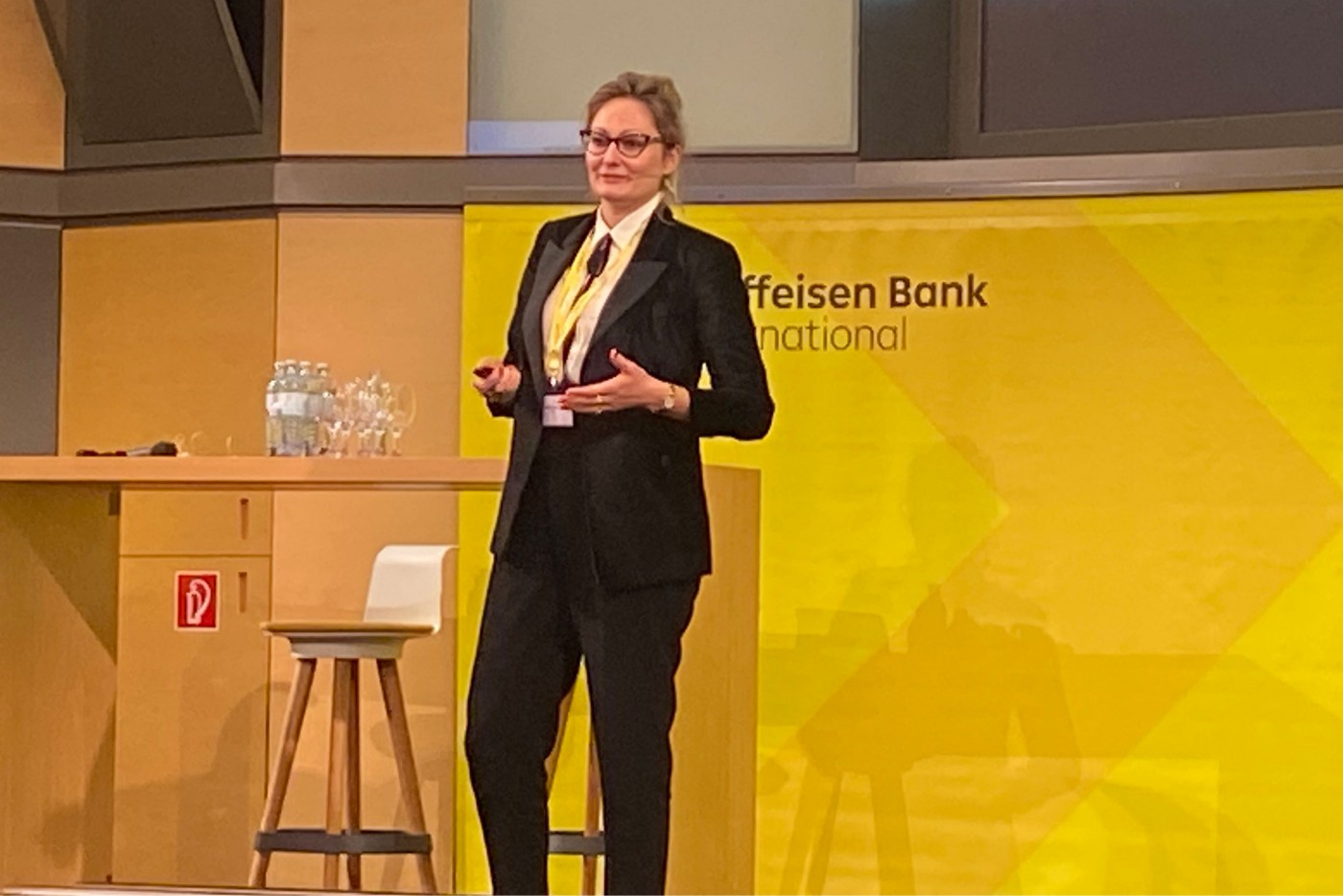
Sustainability in Focus - As a Role Model and in Business Alignment
In the beginning, sustainability was a topic that only affected a few. Today, all business areas of Raiffeisen Bank International are involved in it, according to the credo of the first "RBI Climate and Environmental Business Summit". To convey ESG knowledge and exchange information within the banking group, more than 200 participants from different business areas of the entire RBI group, including all sustainability officers, met for a two-day event in Vienna.
There, the latest developments in the field of sustainable finance were discussed. According to Markus Ecker, Head of Sustainable Finance at Raiffeisen Bank International, it is not regulation that motivates RBI, but the intention to do something right, to support customers and to be attractive to investors and employees. They can make a significant contribution to financing sustainable transformation and help customers with ESG expertise, thereby minimizing their own risks caused by climate change. The motto of the RBI is to better understand climate change and grow sustainably.
In the past, it was mainly about identifying and reporting various sustainability indicators, but today ESG topics influence daily banking business in all areas. The work of the banking group can only be resilient if our customers are as well. Sustainable financing and sustainable products are in demand. The RBI can support them with its long-standing expertise and high consulting quality in their sustainable transformation journey. Green Bonds are just one example of the opportunity to grow with new products and sustainable customer business. The RBI Group has already arranged green or sustainable bonds for more than 20 companies in a leading role.

Influencers with sustainable practices
Influencers with a focus on sustainability are becoming increasingly popular. This trend is driven by growing awareness of the need for environmentally friendly practices in our daily lives. Consumers are increasingly turning to influencers to learn about a more environmentally friendly lifestyle. Influencers who promote sustainable practices therefore have the potential to reach a large audience.
In this sense, the RBI is a sustainable influencer - for customers, employees and society: "We need to spread more optimism and inspiration. A commitment that goes beyond pure banking business is a must for a responsible banker." For CEO Johann Strobl, imparting financial competence is a key to securing future prosperity. Therefore, the RBI has been working on a new approach to financial education in recent months, and for example has designed an interactive method with the "Minecraft Education Edition" to teach young students important financial aspects and terms through a computer game.
Christine Würfel, Head of Group ESG & Sustainability Management at RBI, informed about the sustainability framework chosen by the RBI, the UNEP FI Principles for Responsible Banking and the milestones achieved since signing in 2021. Since then, significant improvements have been made in areas such as climate change, environment, inclusion and governance. Examples include progress in sectoral guidelines for coal, oil and gas, or the expansion of sustainable financing as well as the internal anchoring of solid ESG governance and an ESG academy for employees. It's about "demonstrating the change", making the change visible. For Würfel, however, it is clear: "The integration of sustainability in all areas is not a sprint, but a marathon."
Revolutionary Changes
Linda Zeilina-Cross, Keynote Speaker and CEO of the Think Tank International Sustainable Finance Centre of Excellence (ISFCOE), recognized the influence of politics, technology, climate change and social inequality. She noted that the connection between sustainability and finance is not a new idea, but has existed since the beginning of the 17th century. She made clear that the wealth transition between generations, new technologies and a globalized information sphere are the most important trends for change. Zeilina-Cross explained that the foundation of the economy will change radically. Especially in Central and Eastern Europe, she sees a lot of catching up to do, as due to lack of knowledge and widespread skepticism one lags behind the more developed economies.

Best Practice and Active Stakeholder Dialogue
In order to keep up with this revolution and accelerate the process and sustainability in all RBI markets, the summit participants had the opportunity to learn from best practice examples.
The focus of the sustainability officers on the second day of the summit was, in addition to the very current topic of the new sustainability reporting and its practical implementation, on future topics such as circular economy and biodiversity. These topics could be discussed with the involvement of external and internal specialists. Jakob Mayr, Sustainable Finance Expert from WWF Austria, showed the urgency of also strategically dealing with the issue of biodiversity as a bank and implementing effective measures based on alarming figures and facts. Manuela Hurmuz, Credit Portfolio Management at RBI, reported on RBI's participation in the EU's CircHive biodiversity project."
Related News
Be the first
Subscribe to Raiffeisen Insights. Get an e-mail with
the latest trends in the world of economics and business.